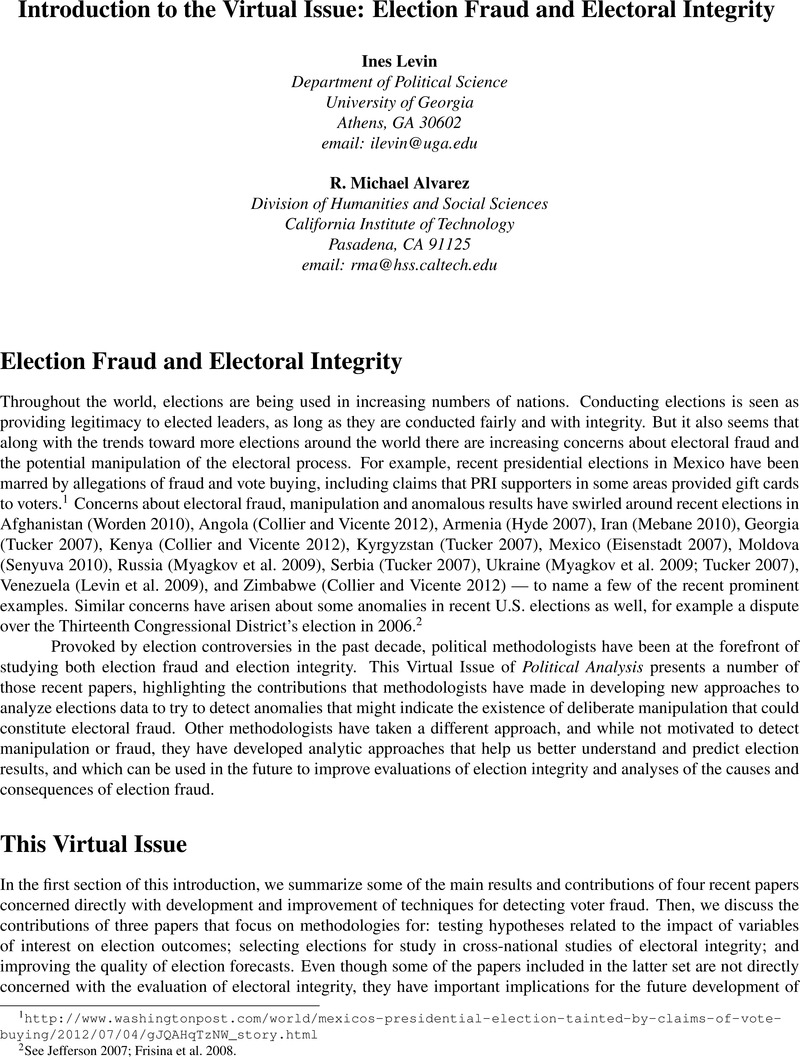Crossref Citations
This article has been cited by the following publications. This list is generated based on data provided by Crossref.
Martínez i Coma, Ferran
and
van Ham, Carolien
2015.
Can experts judge elections? Testing the validity of expert judgments for measuring election integrity.
European Journal of Political Research,
Vol. 54,
Issue. 2,
p.
305.
van Ham, Carolien
and
Lindberg, Staffan
2015.
When Guardians Matter Most: Exploring the Conditions Under Which Electoral Management Body Institutional Design Affects Election Integrity.
Irish Political Studies,
Vol. 30,
Issue. 4,
p.
454.
Bader, Max
and
van Ham, Carolien
2015.
What explains regional variation in election fraud? Evidence from Russia: a research note.
Post-Soviet Affairs,
Vol. 31,
Issue. 6,
p.
514.
Jimenez, Raúl
Hidalgo, Manuel
and
Klimek, Peter
2017.
Testing for voter rigging in small polling stations.
Science Advances,
Vol. 3,
Issue. 6,
Akinyokun, Nicholas
and
Teague, Vanessa
2019.
Receipt-Free, Universally and Individually Verifiable Poll Attendance.
p.
1.
Tunmibi, Sunday
and
Olatokun, Wole
2022.
Advances in Digital Transformation - Rise of Ultra-Smart Fully Automated Cyberspace.
Willis, Derek
Merivaki, Thessalia
and
Ziogas, Ioannis
2022.
Election Data Transparency: Obtaining Precinct-Level Election Returns.
Public Integrity,
Vol. 24,
Issue. 2,
p.
162.
Ng, Grace Y.
Gallagher, Ryan S.
Borja, Austin J.
Jabarkheel, Rashad
Na, Jianbo
McClintock, Scott D.
Chen, H. Isaac
Petrov, Dmitriy
Jankowitz, Brian T.
and
Malhotra, Neil R.
2023.
Neurosurgeons Deliver Similar Quality Care Regardless of First Assistant Type: Resident Physician versus Nonphysician Surgical Assistant.
World Neurosurgery,
Vol. 174,
Issue. ,
p.
e144.



